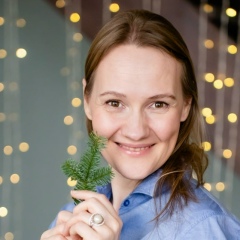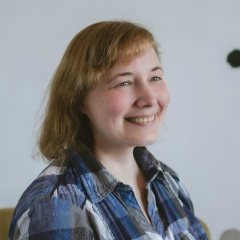Международный манифест «Наука и доверие» (2016)
Президент Российской академии наук Владимир Фортов подписал международный манифест о роли науки и необходимости передачи знаний всем живущим на планете людям. Об этом говорится в имеющемся в распоряжении ТАСС манифесте "Наука и доверие", под которым Фортов поставил подпись вместе с постоянным секретарем Французской академии наук Катрин Брешиньяк. Документ был разработан мировым научным сообществом к 350-летию Французской академии наук, которое прошло 27 сентября 2016 года. Тогда же его подписали президенты академий наук и научных организаций разных стран. Теперь к манифесту присоединилась и Россия. Ниже приведен текст манифеста.
«Наука и доверие», Совместная декларация
Знание, умение, понимание нас самих и окружающего нас мира – это движущие факторы существования и развития человечества, где безусловным источником прогресса являются приобретенные на протяжении многих веков научные знания. Это рычаги культурного развития, креативного сотрудничества и роста, а, иногда, и источник для непредвиденного применения полученных знаний. Научные знания, их умножение посредством научно-технологических исследований – это достояние всего человечества. Поэтому необходимо передать эти знания каждому, они должны принадлежать всем живущим на Земле.
Перед лицом глобальных вызовов начала XXI века – беспрецедентного увеличения численности населения, истощения природных ресурсов, существенного разрыва в уровне развития стран, изменения глобального равновесия – особенно важно действовать с опорой на выверенный научный подход.
Наука, поставленная на службу всему человечеству, когда полученные знания применяются с пользой для всех людей, способна ответить на многие вызовы. С другой стороны было бы ошибкой полагать, что наука способна ответить на все поставленные вопросы. Конечно, нет. Однако, очевидно, что обскурантистское видение будущего явилось бы существенным тормозом для развития цивилизаций.
Во все времена крупные достижения человечества были связаны с изменениями в коммуникациях между людьми, начиная с крупных переселений народов в доисторическую эпоху и заканчивая современными виртуальными средствами коммуникаций. Сегодня, в наш быстрый век цифровых технологий с реактивным ритмом общения между людьми, часто вносящим путаницу и недосказанность, нам порой необходимо остановиться, взять паузу для осмысления. Поэтому так важно научиться правильным образом использовать этот новый инструмент общения, чтобы у людей также оставалось время на размышление, необходимое для рождения знаний.
Наука и общество находятся во взаимодействии. Они ни в коем случае не должны быть ни в конфронтации, ни игнорировать друг друга. Напротив, они должны вступать в диалог, оказывать взаимную поддержку для целей всеобщего прогресса. Сейчас, когда периодически ставятся под сомнение польза и важность науки, Академии, собравшиеся в Париже 27 сентября 2016 года, напротив, хотят продемонстрировать свою веру в способность науки двигать человечество вперед.
отсюда:
http://www.ambafrance-ru.org/Nauka-i-doverie-Sovmestnaya-deklaraciya
Президент Российской академии наук Владимир Фортов подписал международный манифест о роли науки и необходимости передачи знаний всем живущим на планете людям. Об этом говорится в имеющемся в распоряжении ТАСС манифесте "Наука и доверие", под которым Фортов поставил подпись вместе с постоянным секретарем Французской академии наук Катрин Брешиньяк. Документ был разработан мировым научным сообществом к 350-летию Французской академии наук, которое прошло 27 сентября 2016 года. Тогда же его подписали президенты академий наук и научных организаций разных стран. Теперь к манифесту присоединилась и Россия. Ниже приведен текст манифеста.
«Наука и доверие», Совместная декларация
Знание, умение, понимание нас самих и окружающего нас мира – это движущие факторы существования и развития человечества, где безусловным источником прогресса являются приобретенные на протяжении многих веков научные знания. Это рычаги культурного развития, креативного сотрудничества и роста, а, иногда, и источник для непредвиденного применения полученных знаний. Научные знания, их умножение посредством научно-технологических исследований – это достояние всего человечества. Поэтому необходимо передать эти знания каждому, они должны принадлежать всем живущим на Земле.
Перед лицом глобальных вызовов начала XXI века – беспрецедентного увеличения численности населения, истощения природных ресурсов, существенного разрыва в уровне развития стран, изменения глобального равновесия – особенно важно действовать с опорой на выверенный научный подход.
Наука, поставленная на службу всему человечеству, когда полученные знания применяются с пользой для всех людей, способна ответить на многие вызовы. С другой стороны было бы ошибкой полагать, что наука способна ответить на все поставленные вопросы. Конечно, нет. Однако, очевидно, что обскурантистское видение будущего явилось бы существенным тормозом для развития цивилизаций.
Во все времена крупные достижения человечества были связаны с изменениями в коммуникациях между людьми, начиная с крупных переселений народов в доисторическую эпоху и заканчивая современными виртуальными средствами коммуникаций. Сегодня, в наш быстрый век цифровых технологий с реактивным ритмом общения между людьми, часто вносящим путаницу и недосказанность, нам порой необходимо остановиться, взять паузу для осмысления. Поэтому так важно научиться правильным образом использовать этот новый инструмент общения, чтобы у людей также оставалось время на размышление, необходимое для рождения знаний.
Наука и общество находятся во взаимодействии. Они ни в коем случае не должны быть ни в конфронтации, ни игнорировать друг друга. Напротив, они должны вступать в диалог, оказывать взаимную поддержку для целей всеобщего прогресса. Сейчас, когда периодически ставятся под сомнение польза и важность науки, Академии, собравшиеся в Париже 27 сентября 2016 года, напротив, хотят продемонстрировать свою веру в способность науки двигать человечество вперед.
отсюда:
http://www.ambafrance-ru.org/Nauka-i-doverie-Sovmestnaya-deklaraciya
International manifesto “Science and Trust” (2016)
President of the Russian Academy of Sciences Vladimir Fortov signed an international manifesto on the role of science and the need to transfer knowledge to all people living on the planet. This is stated in the TASS manifesto entitled “Science and Trust,” under which Fortov signed with Catherine Bresignac, Permanent Secretary of the French Academy of Sciences. The document was developed by the world scientific community for the 350th anniversary of the French Academy of Sciences, which took place on September 27, 2016. Then it was signed by the presidents of the academies of sciences and scientific organizations of different countries. Now Russia has joined the manifesto. The following is the text of the manifest.
Science and Trust, Joint Declaration
Knowledge, skill, understanding of ourselves and the world around us are the driving factors of the existence and development of mankind, where scientific knowledge acquired over many centuries is an unconditional source of progress. These are levers of cultural development, creative cooperation and growth, and, sometimes, a source for the unexpected application of acquired knowledge. Scientific knowledge, its multiplication through scientific and technological research is the property of all mankind. Therefore, it is necessary to transfer this knowledge to everyone, they must belong to everyone living on Earth.
In the face of global challenges at the beginning of the 21st century - an unprecedented increase in population, depletion of natural resources, a significant gap in the level of development of countries, changes in global equilibrium - it is especially important to act on the basis of a sound scientific approach.
Science, put at the service of all mankind, when the knowledge gained is applied to the benefit of all people, is able to answer many challenges. On the other hand, it would be a mistake to believe that science is able to answer all the questions posed. Of course not. However, it is obvious that the obscurantist vision of the future would be an essential brake on the development of civilizations.
At all times, the great achievements of mankind have been associated with changes in communications between people, starting with large-scale migrations of peoples in the prehistoric era and ending with modern virtual means of communication. Today, in our fast age of digital technologies with a reactive rhythm of communication between people, often confusing and understated, we sometimes need to stop, take a break for reflection. Therefore, it is so important to learn how to use this new communication tool in the right way, so that people also have time to think, which is necessary for the birth of knowledge.
Science and society are in interaction. In no case should they be in confrontation or ignore each other. On the contrary, they should engage in dialogue and provide mutual support for the purpose of universal progress. Now that the usefulness and importance of science is periodically questioned, the Academies in Paris on September 27, 2016, on the contrary, want to demonstrate their faith in the ability of science to move humanity forward.
from here:
http://www.ambafrance-ru.org/Nauka-i-doverie-Sovmestnaya-deklaraciya
President of the Russian Academy of Sciences Vladimir Fortov signed an international manifesto on the role of science and the need to transfer knowledge to all people living on the planet. This is stated in the TASS manifesto entitled “Science and Trust,” under which Fortov signed with Catherine Bresignac, Permanent Secretary of the French Academy of Sciences. The document was developed by the world scientific community for the 350th anniversary of the French Academy of Sciences, which took place on September 27, 2016. Then it was signed by the presidents of the academies of sciences and scientific organizations of different countries. Now Russia has joined the manifesto. The following is the text of the manifest.
Science and Trust, Joint Declaration
Knowledge, skill, understanding of ourselves and the world around us are the driving factors of the existence and development of mankind, where scientific knowledge acquired over many centuries is an unconditional source of progress. These are levers of cultural development, creative cooperation and growth, and, sometimes, a source for the unexpected application of acquired knowledge. Scientific knowledge, its multiplication through scientific and technological research is the property of all mankind. Therefore, it is necessary to transfer this knowledge to everyone, they must belong to everyone living on Earth.
In the face of global challenges at the beginning of the 21st century - an unprecedented increase in population, depletion of natural resources, a significant gap in the level of development of countries, changes in global equilibrium - it is especially important to act on the basis of a sound scientific approach.
Science, put at the service of all mankind, when the knowledge gained is applied to the benefit of all people, is able to answer many challenges. On the other hand, it would be a mistake to believe that science is able to answer all the questions posed. Of course not. However, it is obvious that the obscurantist vision of the future would be an essential brake on the development of civilizations.
At all times, the great achievements of mankind have been associated with changes in communications between people, starting with large-scale migrations of peoples in the prehistoric era and ending with modern virtual means of communication. Today, in our fast age of digital technologies with a reactive rhythm of communication between people, often confusing and understated, we sometimes need to stop, take a break for reflection. Therefore, it is so important to learn how to use this new communication tool in the right way, so that people also have time to think, which is necessary for the birth of knowledge.
Science and society are in interaction. In no case should they be in confrontation or ignore each other. On the contrary, they should engage in dialogue and provide mutual support for the purpose of universal progress. Now that the usefulness and importance of science is periodically questioned, the Academies in Paris on September 27, 2016, on the contrary, want to demonstrate their faith in the ability of science to move humanity forward.
from here:
http://www.ambafrance-ru.org/Nauka-i-doverie-Sovmestnaya-deklaraciya

У записи 4 лайков,
0 репостов.
0 репостов.
Эту запись оставил(а) на своей стене Максим Жерновой

























